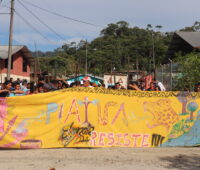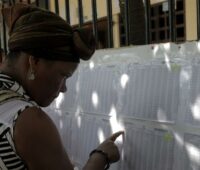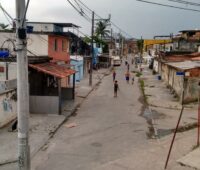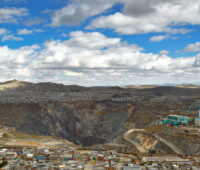In her essay, Karla Mundim examines Indigenous protest movements in Ecuador, focusing on the protests against construction on the Piatua River in the Ecuadorian Amazon. Mundim argues that, despite the enshrining of the prior consultation of Indigenous communities and the "rights of nature" in the country's constitution, Indigenous communities continue to protests and make themselves visible to the state to safeguard their democratic rights.























